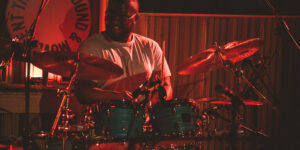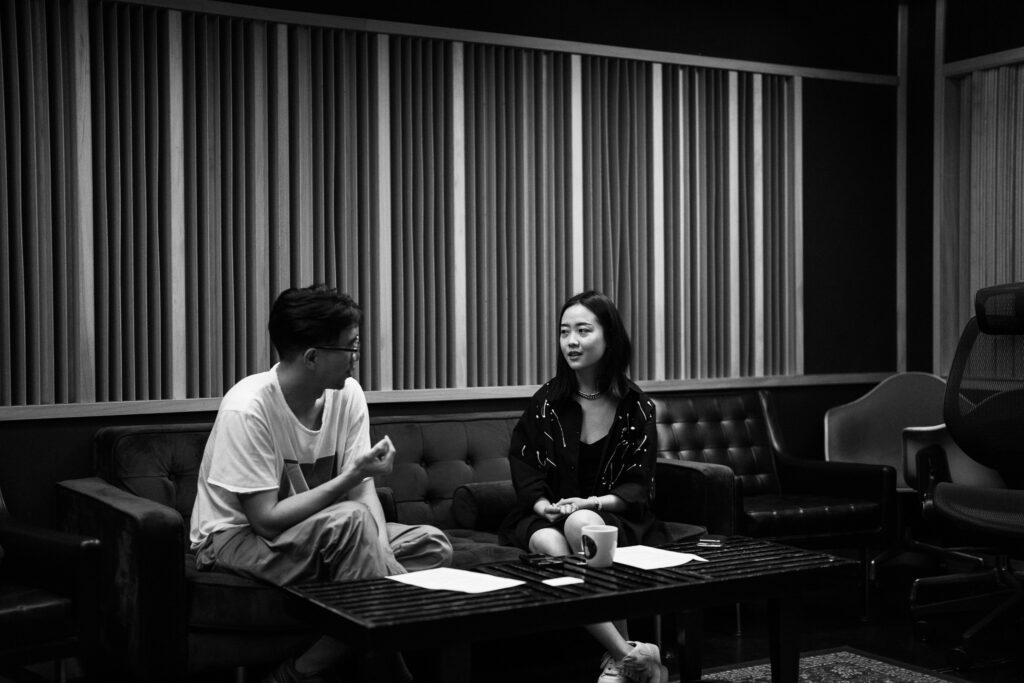
— Welcome back to Taiwan. You've been away during these years of the pandemic, so maybe not everyone is familiar with you. Can you tell us how you transitioned from being identified as a "classical musician" to becoming a "jazz vibraphonist"?
I come from a classical music background. I started learning piano at the age of 6 and percussion at the age of 10. I've always been in music classes. Since the third grade of elementary school, I've attended the Shin-hsih Elementary School's music class, Hsinmin Junior High School's music class, and Wuling High School's music class. Then, I attended Taipei University of the Arts. After that, I joined the Ju Percussion Group and the Sizhukong (jazz fusion band). After finishing my Bachelor's at Taipei University of the Arts, I continued there for my Master's, spending a total of 7 years there.
When I started at the age of 10, I studied the marimba, snare drum, and timpani, because in the music class exams, we were always tested on these three instruments for the end-of-term percussion exam. So when I transitioned to jazz, I chose the vibraphone for this reason. From the age of 10 to 25, I underwent percussion training until I graduated from graduate school. For me, playing the vibraphone was a natural transition.
This is the instrument I am most familiar with. It has percussive elements, along with a clear scale. Its mid and high-mid frequencies are very penetrating. Moreover, it's not as large as a marimba. (Laughs)
—The United States might be a bit unfamiliar to Taiwanese audiences. Did you start your career in New York?
I went from Zhongli to Taipei, then Taipei to Philadelphia to study jazz music, and only moved to New York after two years in Philadelphia. I've experienced many places and seen a lot.
Initially, when I was in Philadelphia, the music scene was dominated by African-Americans, and the jazz music in different parts of the United States has its own style. I once heard a musician from Philadelphia say that musicians in New York play the piano with their brains, because it brings together people from all over the world. The jazz in New York tends to be more complex in rhythms. Musicians in Philadelphia play the piano with their hearts.
While in Philadelphia, someone wanted to do a tribute show for Roy Ayers, a vibraphonist in his 90s who is one of the representatives of the fusion of R&B and jazz. Everyone had no objections to me, an Asian girl, taking on the role of Roy in this performance ensemble.
After moving to New York, I learned a lot from collaborating with Jeremy Pelt, a jazz trumpeter. He's been deeply rooted in the New York jazz scene for over 25 years. I was very nervous when I first started working with him, because I didn't know their level and style and was worried that I wouldn't be able to keep up. But when I got to the rehearsal room, I found it wasn't as terrifying as I'd imagined, and the current musical climate in New York encourages people of different skin colors to stand out and express themselves. I've never felt like an outsider in music. But in everyday life, it's not necessarily the case.
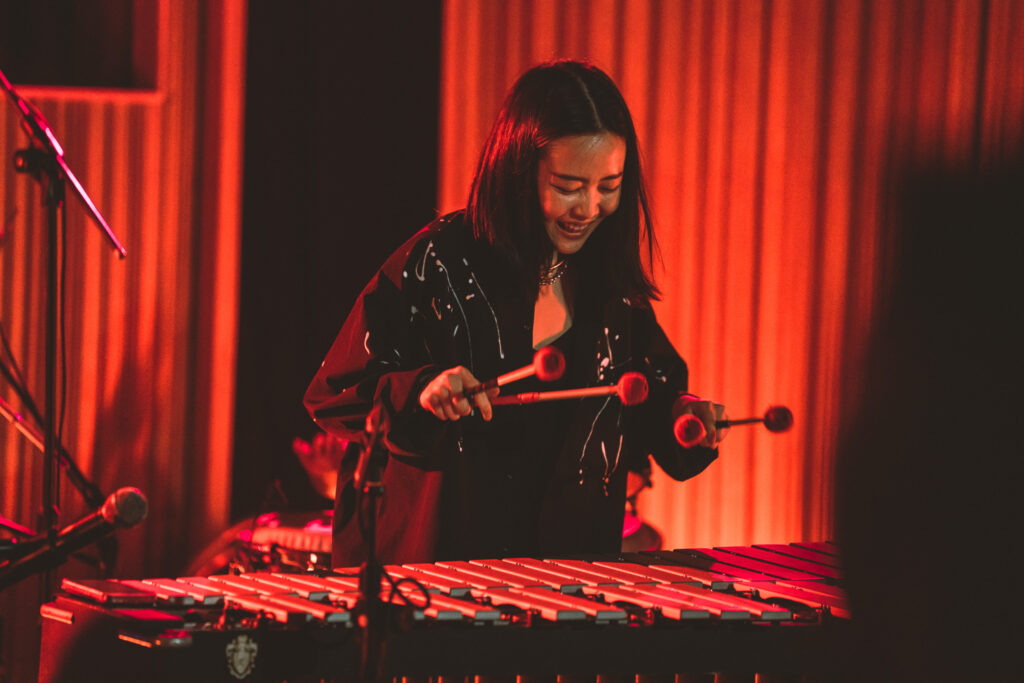
— New York, a world-renowned metropolis, what kind of impact did it have on you? What did it provide you with?
I moved to New York in 2017, and it's a place that constantly makes you think.
New York can make people feel depressed, which leads you to think about a lot of things. The music scene here is very large and very competitive. Jazz is a tough field, so at first, you feel you need to toughen up. But later on, you realize that's not necessary. You should just follow your own pace, which will allow you to last longer.
An interesting phenomenon is that often, because of my identity as an Asian girl, before introducing myself at many occasions, people would assume that I was the "Asian" girlfriend of some musician, not the performer. Also, none of my Taiwanese friends are working in similar environments, so in New York, I rarely have a comfort zone, which is completely opposite to the situation in Taiwan where I don't have to worry about belonging, companionship, or financial situation.
To me, New York shapes a musician, not only because there are many great musicians in the city. The challenges you face in New York, being far from your own community, not having a comfort zone, and working with talented musicians, all these factors contribute to a sense of loneliness that drives me to constantly improve myself.
We often magnify the power of the enemy in our minds.
—Congratulations on being recommended as one of the Top 10 New Jazz Artists by the Grammy. This is an extremely positive affirmation. Could you encourage Taiwanese musicians who want to develop abroad?
I encourage everyone to step out because in fact, it is not as difficult as we imagine. If you have already acquired certain skills or been admitted to a specific school, you know where your level is, so don't be afraid. In the United States, as long as someone wants to collaborate with you, for me, it is a great learning opportunity, because often the musicians who invite me are stronger. That feeling is like they are leading me forward.
——Your debut album, "The Path," includes renditions of "Bāng Chhun-hong" (望春風) and "The Dull Ice Flower" (魯冰花). What is the intent behind these adaptations?
To be frank, I'm not entirely satisfied with the adaptations of "Bāng Chhun-hong" and "The Dull Ice Flower."
When I released my first album, "The Path," I remember having absolutely no idea what kind of music I wanted to make. It was a complete blank. I later reflected on this and realized it was a result of the peaceful environment in Taiwan, where I just kept practicing in the piano room at school. I didn't have to think about what I wanted to express through music.
Producer Richie Goods really liked the melodies of these two songs. Because it was my first album, he suggested including some cover songs. These adaptations could serve as a point of interest to draw the audience's attention.
In terms of cultural 'root-seeking,' I began learning Nanguan music (traditional southern Min music) when I started working with the Gang-a Tsui Theater. There are many commonalities between Nanguan and Jazz. First, they are both music that followed the "money" – from Quanzhou along the coast to the ports of Louisiana, places where money gathered and where business people listened to music.
Another commonality is the sense of "beat." Both Nanguan and Jazz have a distinct rhythmic feel. In my current collaboration, I will no longer simply adapt the melody as I did when arranging "Bāng Chhun-hong" or "The Dull Ice Flower." Cross-cultural collaboration or fusion music to me is like an interracial romance. It shouldn't be about one becoming the other. Instead, we should analyze the structures of each type of music, identify their unique elements, whether they're the same or different, and try to blend them together.
I don't want my music to be either too obscure or entirely pop. I like to find a middle ground. I want my music to be like a piece of artwork, but also something that people can dance to. I prefer that kind of work.
—Congratulations on your new album "Connected" being nominated for the Golden Melody Awards! Your two albums "The Path" and "Connected" seem to have a strong connection in their titles. Could you share their stories?
"The Path" and "Connected" are both albums I produced with Richie. "The Path" records my past, the life before I released my first album, while "Connected" is a record of my life in New York during the three years of the pandemic. I remember when the pandemic first started, we often heard about racial inequality, or hatred towards Asians brought on by the pandemic.
Besides reflecting on the pandemic, this album also talks about connections between people and is an important milestone in my collaboration with Richie. During New York's lockdown, artists finally had the time to settle down and reflect, to organize their thoughts. You can think of these two albums as different portraits of me at different points in time.
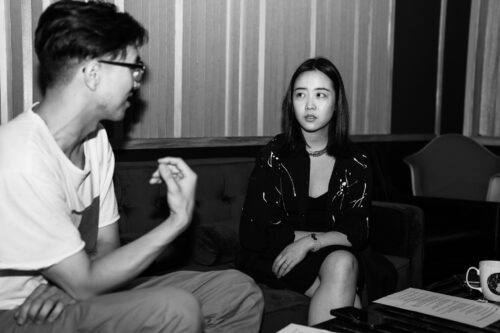
*The interview took place before the Golden Melody Award, a month later, Chien Chien and Richie Goods was crowned for the Best Instrumental Album Award of GMA 34th.
—Your band is composed of people from all over the world. Can you tell us about the members for this tour?
Richie and I met through our collaboration with Jeremy Pelt. Richie used to be a producer/musician in the R&B and Hip Hop scene, but he is mainly active in the Jazz scene. After Jeremy's European tour ended, he came to ask me, "Have you released any solo albums?" When I said no, he volunteered to be my album producer.
Young guitarist Quintin Zoto was invited to join our band when we first formed. We asked Quintin if he was willing to perform together as it was an experimental phase, so the pay wouldn't be high. Regardless of the remuneration, he was willing to participate because we have veteran Richie in our band, which he saw as a practice opportunity. He has improved dramatically over time and has now started to get the hang of it.
Miki Hayama is a respected pianist in the New York Jazz scene. Although she is older, she looks young due to good self-care. Originally from Kyoto, she couldn't stand her life in Japan, so she moved to New York as soon as she got her visa. She got an opportunity to play piano at a black church and learned Gospel from the church's drummer. She recently began exploring electronic music, and you can see her playing the synthesizer later.
Mike Piolet is our tour drummer. We usually have 2-3 drummers in rotation because they are all very busy. Mike is normally the chief resident drummer at Hamilton Broadway Theater, performing at least 8 shows a week. When we invited him to join the band, he immediately agreed. I think this was due to his relatively stable financial situation. So, when we invited him to Taiwan, he immediately agreed as well.
Lastly, Ismel Wignall is a percussionist who grew up in Cuba, specializing in African and Cuban rhythms. He has been performing around the world with Sexto Sentido Quartet since he was 20. Later, you can see his dialogue with Mike and Richie. Our band has a strong rhythm section, so whatever I play makes sense.
- Richie Goods
- Chien Chien Lu
- Miki Hayama
- Quintin Zoto
- Mike Piolet
- Ismel Wignall
—This time, your collaboration with Melting Part, SOUND OF JUSTICE, is different in terms of performance content. How does it compare to other shows?
For most of the Taiwan tour, the performances were held in venues like national concert halls, where everyone sits down and listens. Overall, the atmosphere is quite calm and formal. However, the content of our performance with Melting Part at Yucheng Recording Studio is different. We've brought the content from our performances in Europe and the United States over here. The rhythm and tension are stronger overall. Also, Richie will do more talking; we are prepared to deliver a high-energy show from beginning to end.
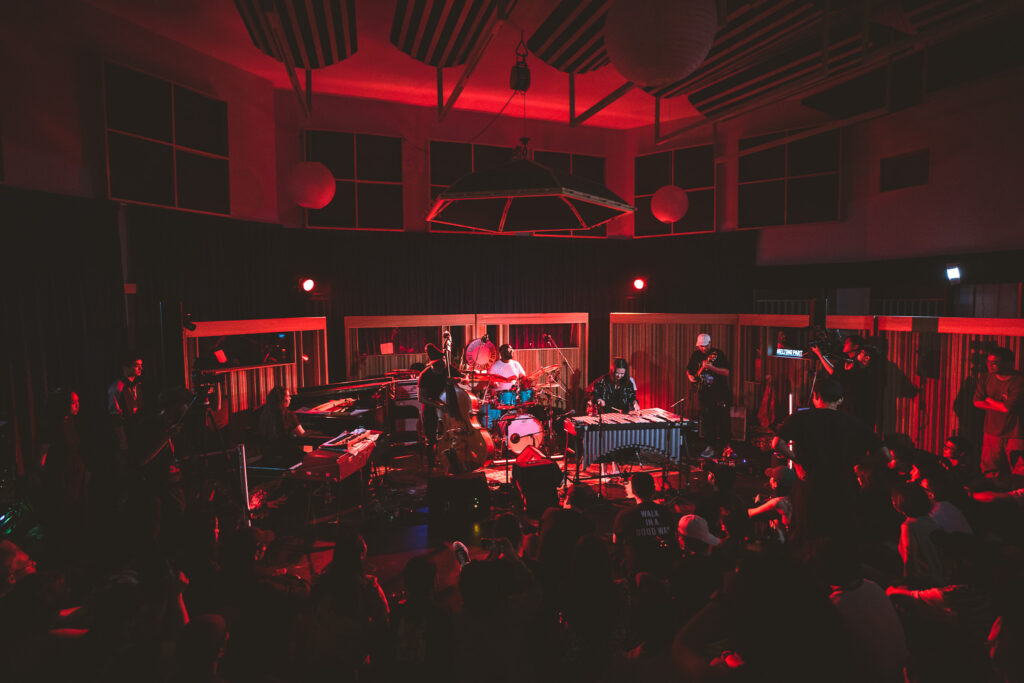
—Finally, once again, welcome back to Taiwan for the tour! What does 'home' mean to you?
To me, 'home' is a community, a place where you belong. If one day this community cannot support your music and your ideals, you have to leave. But this community carries a lot of cultural elements, and, of course, food. (Laughs)
For me, 'homecoming' means bringing back some experiences and insights from the outside world to improve the original place and make the community better. Home is a place you both love and resent. You may have complaints, but at the same time, you still love it and want to contribute to it. After all, you still love it!





